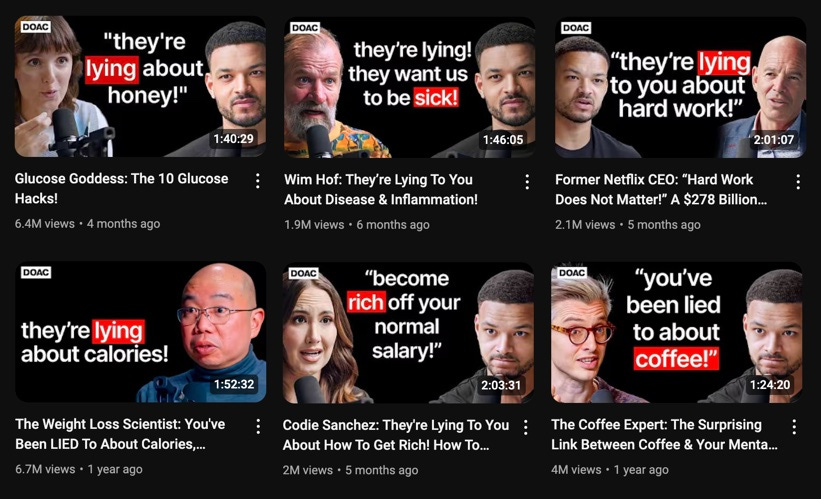The Digital Whirlpool
What are we being sucked into?
In 2004 I was bodyboarding with my best mate Jack in Cornwall.
Over a few minutes, the weather turned.
Clouds brooded, the swell swelled and we carried on bodyboarding badly.
Once we realised what was happening, the current already had us, accelerating us backwards and across the shore.
We were racing across the headland towards some ominous cliffs where the waves crashed into their rocky teeth.
The human body is such a small fragile thing compared to the power of the ocean.
If we reached those rocks the only possible outcome was our lifeless bodies being fished out by some grim-faced lifeguard who would have to tell our mums what had happened.
Little did we know our path was already set.
Our frantic paddling against the current was as effective as trying to achieve flight by flapping our arms.
We continued to cough and splutter right into the jaws of death.
As it became increasingly obvious there was no way out, I had some of those ephemeral “is this really it” feelings.
But then.
Out of
nowhere
roared
The prettiest and most wonderful grey lifeboat.
Strong hands of a grim-faced lifeguard yanked our sorry arses out of the water.
Strong motors sped us away from the rocks in the nick of time.
Strong words told us to be more careful as they dropped us on the beach 5 minutes later.
We shook it off, went home for a pizza and didn’t tell our mums.
Teenagers.
Beware Fast Moving Currents
Strong currents are sadly not confined to water systems. Social media and YouTube has very fast-moving currents.
If you linger too long on a photo of big boobs or rock-hard abs you’ll get a copious volume of soft porn coming your way.
This might seem harmless, but when a small ideology get’s amplified, things can get weird.
Skepticism to Conspiracy
A little climate scepticism can be understandable. Perhaps someone is fed up with hearing that eating steak means they are a bad person. Tbf, it’s annoying to be told that.
Some climate scepticism on social media can quickly turn you into a conspiracy-wielding gremlin convinced that vegetables are toxic, COVID was a hoax and vaccines were created to turn your brain to putty.
Equality to Radicalisation
A woman might understandably believe that women could have fairer rights. Tbf, they could.
Online, an impressionable teenager might become convinced that the evil nature of men can somehow explain every single problem in her life.
If you want to function in a society with 50% men, that is a limiting ideology.
Imaginary Oppresssion
“The problem with a revolt against imaginary oppression is that you end up with imaginary freedom” - Fintan O’Toole
Fighting incredibly amplified versions of a problem makes life more difficult.
Brexit afterall was a hypothetical solution to imaginary problems.
Remember.
Social media is a raging river of information moving far faster than you can ever swim.
Creators
Social media doesn’t just affect consumers, but the creators as well. When you’re rewarded for extremity, you become more extreme.
Mr Beast started streaming gaming videos and these days he buries himself alive or getting hundreds of people to fight for millions of dollars.
Extremification isn’t always bad.
A vague history channel about lots of different things, that learns to focus on becoming the singular best channel obsessed with the history of pandemics is probably good.
But in many scenarious extremification can be dangerous.
Imagine you’re a speed flyer. A video of your close call with the ground goes viral.
Your next 100 videos are not about the best packing strategies for your wing or the pros and cons of different foil weights.
Audience (and sponsorship) will come from sending your breakable body wizzing past solid unmoveable objects, like the ground, at 200 miles an hour.
Is this sensible?
No.
Political
Louise Mensch was a respected journalist and conservative politician.
She published a viral story in 2016 on Trump-Russia ties. Her audience ballooned as she led the #NotMyPresident movement and took it upon herself to expose Russia-gate.
Louise pursued increasingly speculative conspiracy theories, including claims that Putin assassinated Andrew Breitbart so Trump could give Steve Bannon Andrew’s job.
As Louise’s personal allies raised concerns about her increasingly fringe views, she dismissed them as Trump or Putin loyalists and carried on ruining her career.
Health
Nicolas Perry was a vegan teenager making videos. He found traction with adventurous eating vidoes known as “MukBang”.
He was a fairly normal dude and a talented musician, until his eating videos kicked off. Commenters loved it and asked for increasingly daring challenges.
Pandering to an audience has won him 6 million subscribers for his alias NikadoAvocado, but at what price?
Other Weird Stuff:
Pan Xiaoting - A Chinese Mukbang TikToker quit her job after finding success with eating videos, but was hospitalised with stomach bleeding.
After recovery, with no job, she returned to live streaming her regular + 8-hour-long-eating challenges and died during a Live broadcast on 14th July.
(She had 10kg of undigested food in her burst stomach)Professional Beggars - line a tunnel under a wealthy Chinese suburb hoping to increase their income through TikTok’s location-based algorithm.
“The dystopian future novelists couldn’t have imagined that it would be this stupid.”
Reddit
Fame?
From the above examples you might think it’s only non-famous people going to extremes.
If you already have fame and an audience then you might be immune from the algorithmic push to extremity?
That assumption would be a false.
Steven Bartlett
A Dragon on BBC’s Dragons Den and host of the Diary of a CEO podcast, he is successful. The podcast is often Britain’s most listened to podcast, with a surging YouTube audience.
He has hunted down the biggest celebrities he can interview to grow the podcast.
He was never one to shy away from sensational 'clickbait'. As YouTube rewarded extreme titles he continued to make them more and more extreme.
Unsatisfied with the performance of spilling the beans on celebrities’ lives and wealth strategies, in 2024 he went on a spree of interviewing 18 lesser-known health conspiracy guests.
These controversial figures provided the most shocking 'You were lied to about X' title/thumbnail combination he could find. All to get more views.
Over 2024 his subscribers nearly doubled. from 4.6M to 8.8M.
To achieve this he willingly spread health misinformation, such as:
Modern cancer treatents are “medieval” and should be cured by the keto diet.
Diet alone can also cure autism and poly-cystic ovarian syndrome.
COVID is an engineered weapon.
Various conspiracies about vaccines.
Claims many evidence based medications are toxic.
Providing simple solutions to complex topics puts lives at risk by driving people away from proven treatments.
When the truth no longer yielded shocking growth, Steven simply used lies to game the platform.
Trends
Other famous people who’ve arguably been radicalised by content creation:
Russel Brand
After relaunching his sober career he started by sharing useful ideas on sobriety, health and relationships whilst also critiqueing mainstream narratives in an accessible way.
He now mostly hosts conspiracy theories about big pharma, global elites and surveillance capitalism.Jordan Peterson
The respected scholar and deep thinker shot to fame with broadly respectable ideas on mental health and the suffering of life.
He increasingly tweets/X’s and podcasts reactionary political commentary and right wing conspiracy content.Elon Musk
His growing tweeting/X’ing addiction is now ~300 tweets a week.
It seems to be having an odd effect on him..
Weirding
As the climate heats we are now experiencing years with a 1.5C average warmer temperature.
However, averages are misleading. The world is not simply 1.5C warmer everyday. The weather is a lot weirder and more extreme.
Just last week, half of LA was on fire whilst 5 other states of America were locked down because of snow drifts. This week there were record breaking blizzards in parts of America with places in Florida, New Orleans and Texas getting 8 inches of snow.
This weirding effect is not dissimilar to our online environment.
Distraction Averages
As content fights for our attention, it gets more distracting, on average.
It isn’t the same content that is a little better and a little more distracting.
The content is weirder and more extreme.
Whilst we watch our real environment get trashed, is this what we want to happen to our online environment as well?
Generations
When it comes to the environment, we are told to think of our children.
We can do the same for our digital environment.
These days, more kids want to be YouTubers than Astronauts. In fact, over 57% of British Gen-Z want to be influencers.
Considering the algorithms reward radicalisation, I’m not convinced this ends well…
To be continued…
On that delightfully positive note, next week we’ll have part 2.
We’ll go into the fast moving currents in our life and how they can be navigated for good and bad outcomes ☺️
Note
I should update that Nicholas Perry very recently underwent a radical fat loss transformation.
(Along with plastic surgery, which he filmed for his audience)













Just wow. Insane weight gain and loss.
100% screwed up on the Steven Bartlett stuff too. Awesome write up